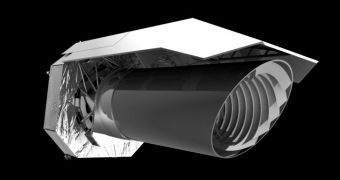A mission dedicated to studying dark energy is essential for our understanding of the Universe, and NASA and ESA have been discussing about building a spacecraft for this purpose together for years. Now, it would seem that the European Space Agency will bear the vast majority of costs.
The agencies were supposed to contribute 50/50, but NASA simply does not have the necessary funds to be involved in this research. As such, it will only contribute a detector or two, or perhaps a reaction wheel or more. The investment will most likely not exceed $20 million (15 million euros).
ESA now plans to launch the Euclid mission in 2019. The spacecraft will be detailed to analyzing the nature of dark energy, as well as its role in the way the Universe evolves. NASA will launch its own dark energy mission, most likely beyond 2025.
At this point, even the reduced cooperation I spoke about earlier is not certain, since no contract has been signed. However, NASA is seeking to gain a seat on the Euclid science panel, which has 12 members, ScienceNow reports.

 14 DAY TRIAL //
14 DAY TRIAL //